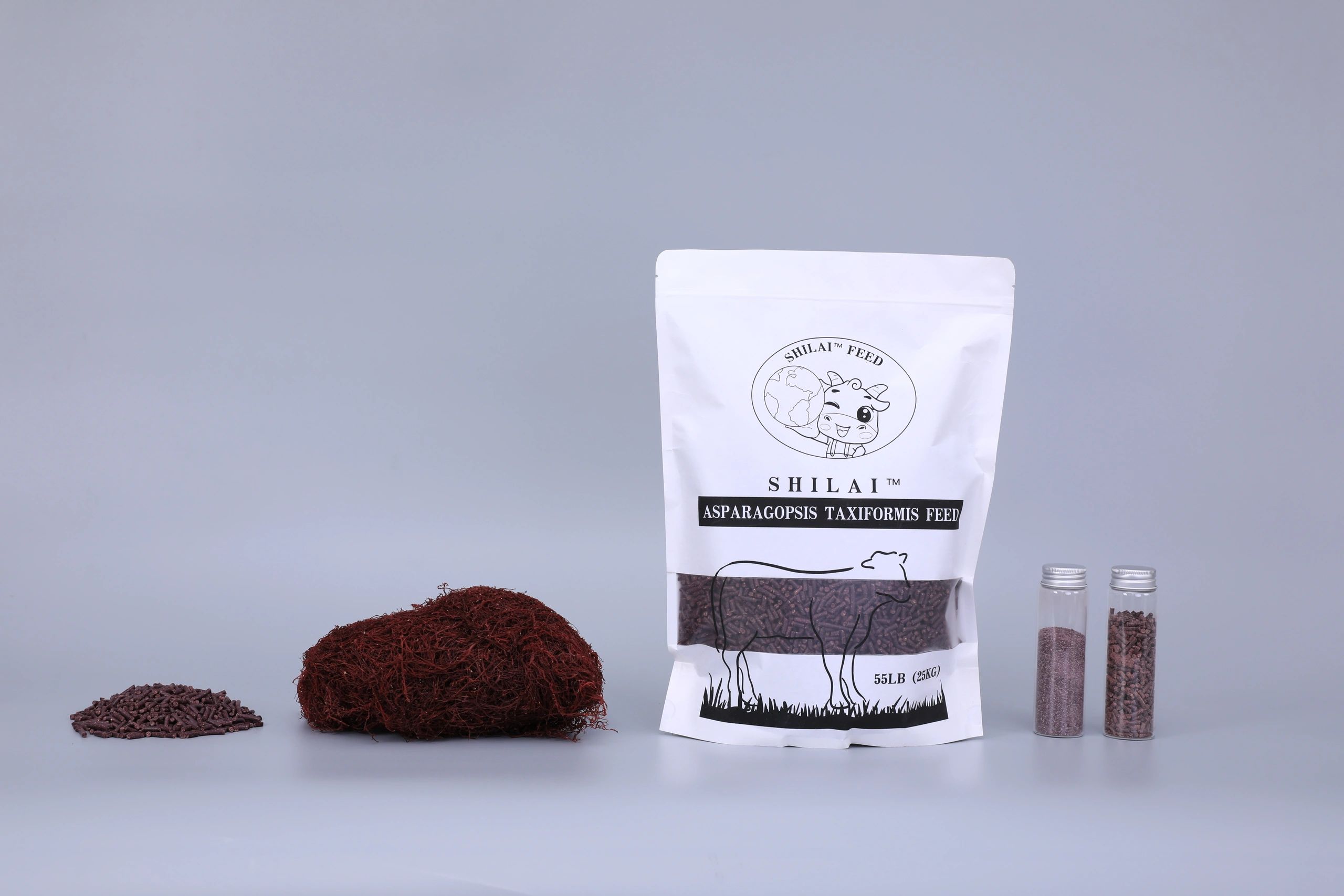
Agriculture around the globe contributes heavily to greenhouse gas generation, predominantly via livestock operations.
Because methane traps far more heat per molecule than carbon dioxide, its emissions are particularly harmful to the climate.
A red seaweed called Asparagopsis taxiformis has surfaced as a potential game-changing tool to lower methane produced by grazing animals.
A unique chemical in the seaweed interferes with rumen methanogens, resulting in measurable decreases in methane production.
Blending Asparagopsis taxiformis into animal feeds has produced trial outcomes that support its potential as a real-world methane mitigation tool.
- Furthermore, Asparagopsis taxiformis delivers a range of complementary benefits beyond methane mitigation.
- Improved animal health and well-being
- Potential to stimulate rural economies via seaweed value chains
Additional scientific and practical work is necessary, but Asparagopsis taxiformis stands out as a promising pathway to greener livestock production.
Unlocking the Potential of Asparagopsis taxiformis Powder as a Feed Additive
Using Asparagopsis taxiformis in powdered concentrate form could markedly improve feed solutions for livestock.
Its profile of nutrients and active substances has the potential to raise livestock productivity and health.
Adding A. taxiformis powder to formulations has produced methane reductions in experiments and may enrich feeds with vital micronutrients.
Deeper investigation is necessary to establish best practices for dosing, feed processing, and long-term animal health outcomes.
Asparagopsis taxiformis and the Next Era of Sustainable Animal Production
Asparagopsis taxiformis has come to prominence as a candidate solution for environmental concerns in animal agriculture.
Adoption of the algae in feed could enable measurable reductions in methane and a smaller ecological footprint for farms.
Beyond emissions, studies indicate Asparagopsis may also improve animal health and productivity metrics in some contexts.
More work to verify long-term safety and logistical viability is necessary, though early findings look promising.
Methane Reduction Through Asparagopsis Feed Additive
Asparagopsis shows up as a viable intervention to significantly reduce methane produced in ruminant digestion.
The seaweed’s effect stems from its ability to inhibit methanogenesis, the microbial process that creates methane in the rumen.
- Experimental studies have reported large percentage reductions in methane when Asparagopsis is included in diets.
- Adopting Asparagopsis in feeds offers an eco-friendly option to address methane from livestock.
- Farmers and producers are increasingly exploring the adoption of Asparagopsis in feeding programs.
Asparagopsis: Revolutionizing Methane Management in Livestock Farming
Seaweed-based innovation, exemplified by Asparagopsis taxiformis, is showing potential to lower enteric methane at scale.
- Feeding trials with Asparagopsis demonstrated substantial methane declines, supporting its environmental promise.
- The development offers a hopeful route to balance food security and environmental protection through methane mitigation.
Within the portfolio of climate mitigation approaches, Asparagopsis is notable for its novel potential to lower methane from animals.
Enhancing the Efficacy of Methane-Cutting Feeds Containing Asparagopsis taxiformis
Studies concentrate on ideal handling, formulation, and application rates to make A. taxiformis-based feeds most effective.
The Science Behind Asparagopsis taxiformis's Methane-Lowering Effects

Scientists attribute the effect to Asparagopsis compounds that impair the methanogenesis process in the rumen.
The compound bromoform within the seaweed is a principal inhibitory agent against methanogenesis, and researchers are studying its dynamics and safety.
Integrating Asparagopsis into Feed Formulations for Sustainable Farming
Asparagopsis’s nutritional profile and methane-cutting bioactives make it an attractive candidate for inclusion in modern feed formulations.
Asparagopsis integration may improve nutrient density, digestive efficiency, and deliver ancillary antimicrobial or immunomodulatory effects.
Asparagopsis taxiformis: A Natural Solution for a Greener Food System
Asparagopsis taxiformis offers a natural pathway to mitigate climate impacts associated with livestock and contribute to sustainable food systems.
- Additionally, the species offers a useful blend of nutrients that complement feed formulations.
- Researchers and practitioners are investigating diverse applications of the species across farming and food industries.
Mainstreaming Asparagopsis use has the potential to achieve measurable reductions in the environmental effects of livestock agriculture.
Animal Health and Productivity Gains from Asparagopsis Feed Inclusion
The seaweed is gaining recognition for potential dual benefits: emissions reduction and enhancements in animal performance.
Findings indicate the seaweed may improve digestive efficiency and feed conversion, positively affecting growth metrics.
Asparagopsis contains compounds with antioxidant and immune-modulating potential that may enhance resilience and reduce disease incidence.
Rising interest in low-emission production pathways makes Asparagopsis a timely option as further research and markets develop.
Asparagopsis Feed Strategies: Moving Toward a Carbon-Neutral Future
The farming sector faces mounting pressure to shrink its carbon footprint, and Asparagopsis offers a plausible mitigation pathway.
- The scientific consensus points to the seaweed’s compounds as inhibitors of rumen methanogenesis, limiting methane output.
- Empirical studies provide promising evidence that diet inclusion of Asparagopsis can substantially lower methane emissions.
This feed innovation could help shift food production toward lower emissions and greater climate resilience.